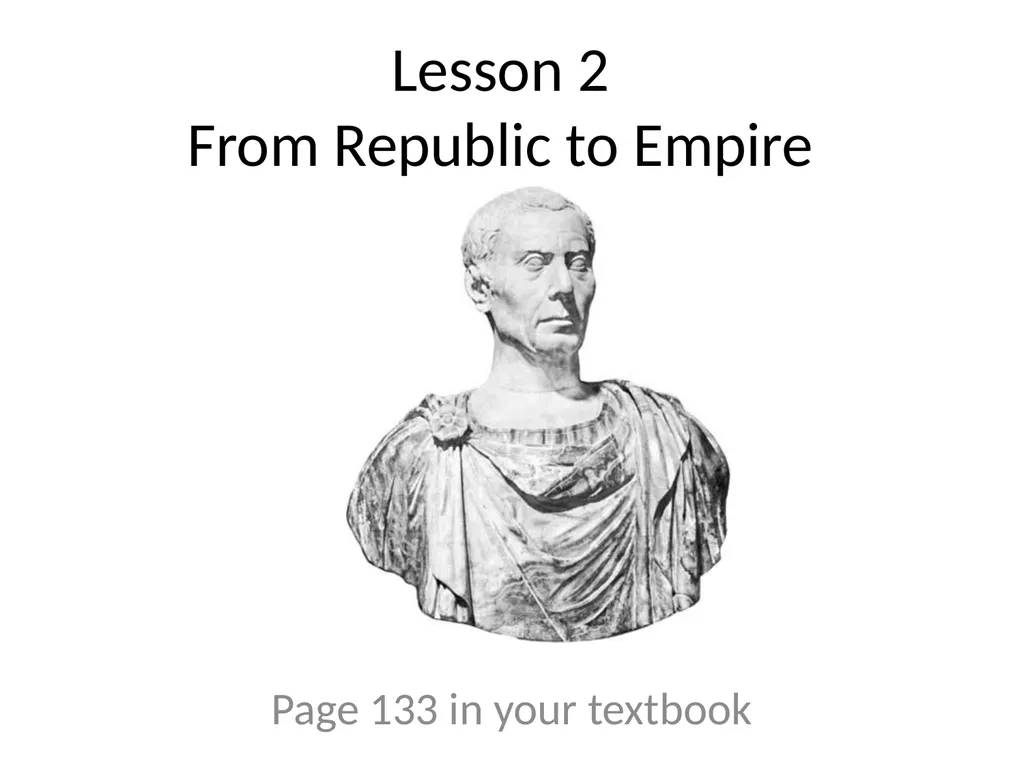
Author : tatiana-dople | Published Date : 2025-05-10
Description: Lesson 2 From Republic to Empire Page 133 in your textbook Decline of the Republic 2nd century BC: Senate was the real governing body of Rome Members of Senate were upper class patricians, aristocratic. The Senate directed the Punic warsDownload Presentation The PPT/PDF document "" is the property of its rightful owner. Permission is granted to download and print the materials on this website for personal, non-commercial use only, and to display it on your personal computer provided you do not modify the materials and that you retain all copyright notices contained in the materials. By downloading content from our website, you accept the terms of this agreement.
Here is the link to download the presentation.
"Lesson 2 From Republic to Empire Page 133 in your"The content belongs to its owner. You may download and print it for personal use, without modification, and keep all copyright notices. By downloading, you agree to these terms.













